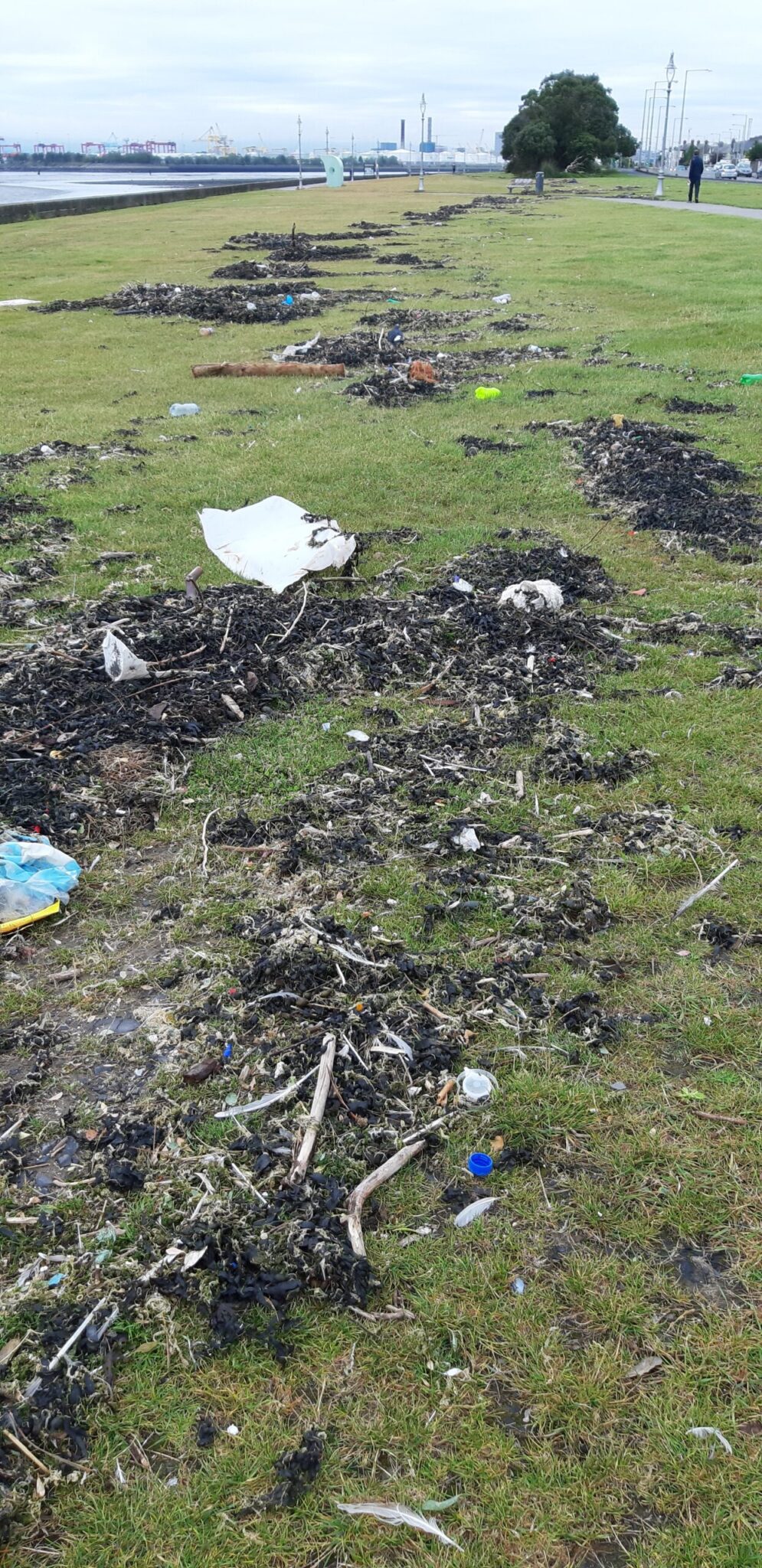Storm Ellen reveals our litter habits
The Irish meteorological agency, Met Eireann with the UKs Met office and, since 2019, Royal Netherlands Meteorological Institute introduced a storm naming system. This followed the 27-28 October 2013 storm which caused 17 deaths in Europe and the 2013-14 Atlantic storms in Europe. The objective is to give a single naming system to prevent confusion with the media and public using different names for the same storms. So last week we had storm Ellen.
Storm Ellen made quite an impact across the country causing flooding and power outages and bringing trees down on rural roads. Gusts of 143km/h were recorded at Roches Point in Cork. The trail left at the coast shows the high tides deposited lots of seaweed. This seaweed will naturally degrade and disappear over time. It will even provide nutrients to the grass where it landed.
However, in the middle of this seaweed is a huge amount of plastic. It is shocking to see the numbers and types of plastic containing items that end up in the sea. These items don’t arrive there from boats – as many might think. These plastic items end up from land, via the rivers to the coasts and seas. These items arrive there because of our behaviour. There were lots of shoes, soft plastic pieces, plastic bottles, and hard plastic bottle tops that were immediately visible. Looking closer, still visible to the eye are the broken up pieces of plastic that have been eroded in the sea. Then, below that again are the microscopic bits. These are the bits that end up in the intestines of birds and fish. Birds see these small items as potential food.
The drive to remove single use plastic items seems to be having a positive effect in reducing their occurrence. However, after a weekend of fine weather, we see lots of plastic items thrown without any consideration, around where people sat. We urgently need to remove plastic bottles and other items that we can certainly live without. The removal of plastic from use, can have a really positive impact on the marine environment.

